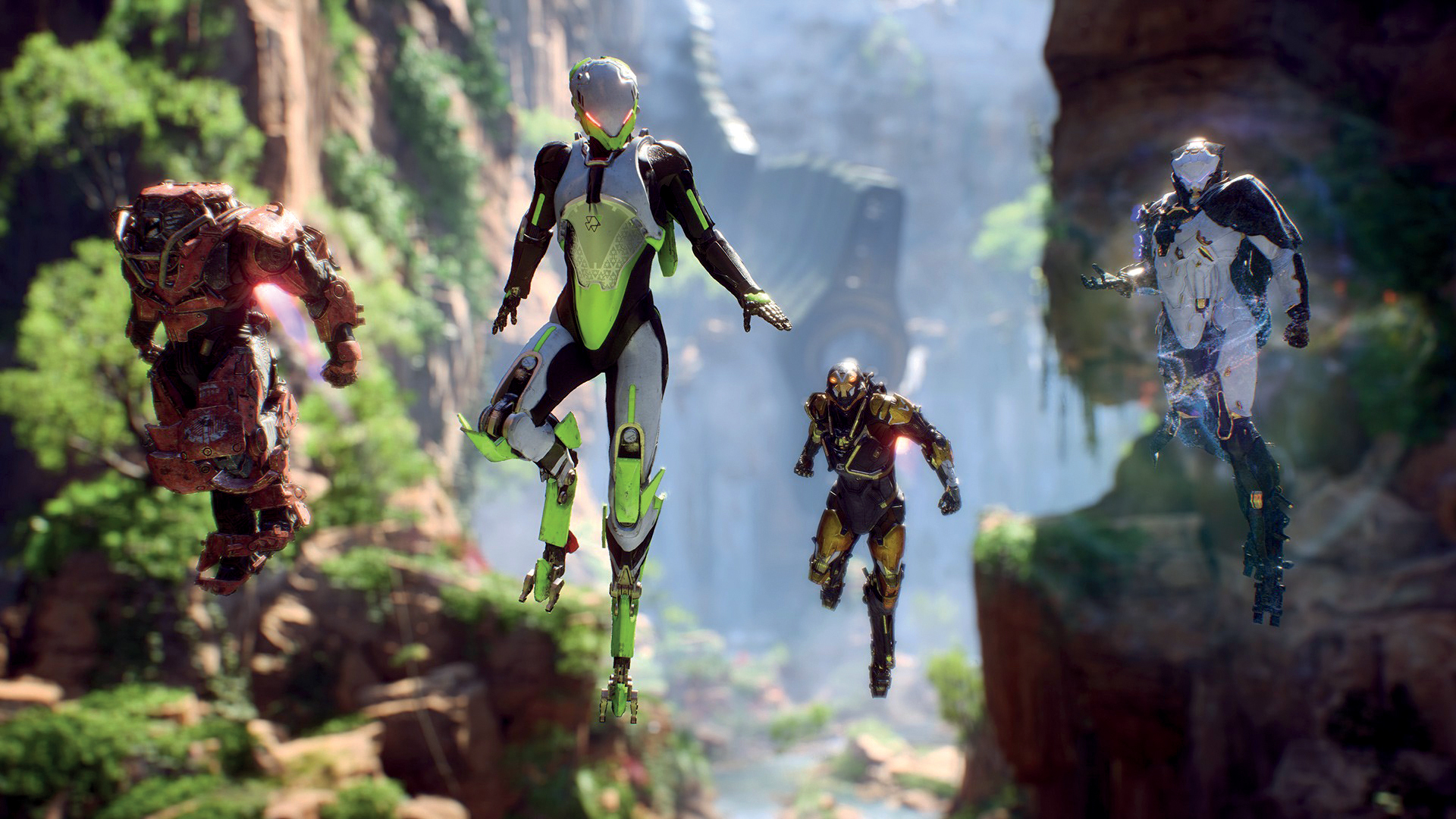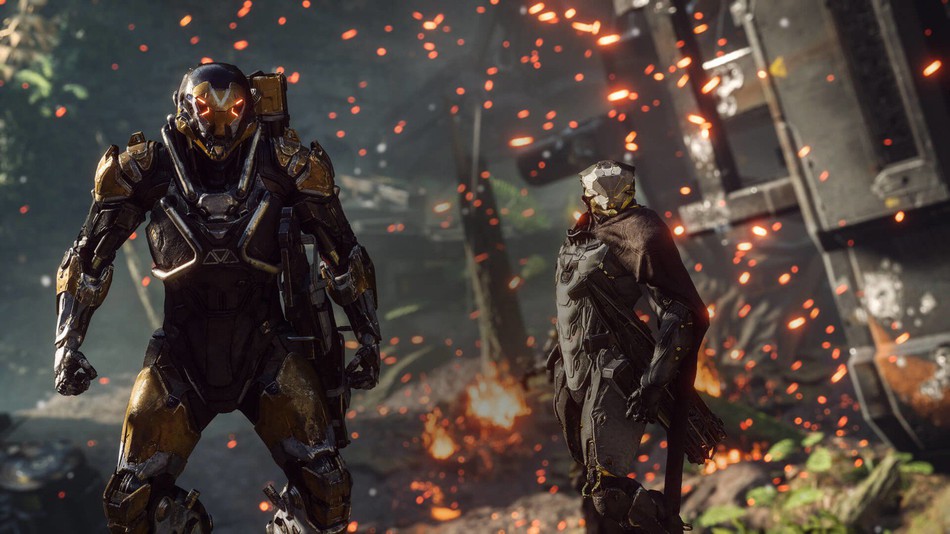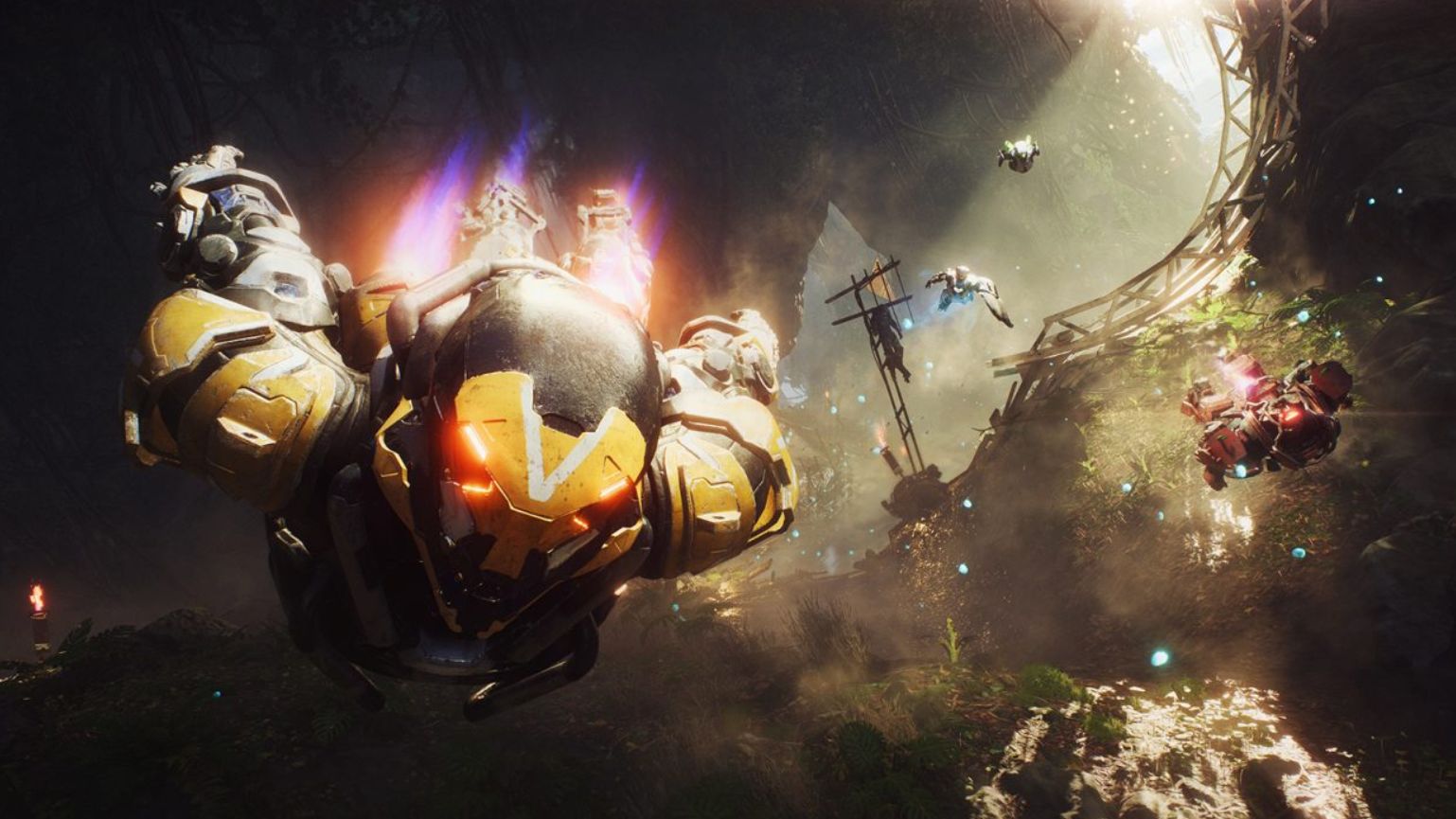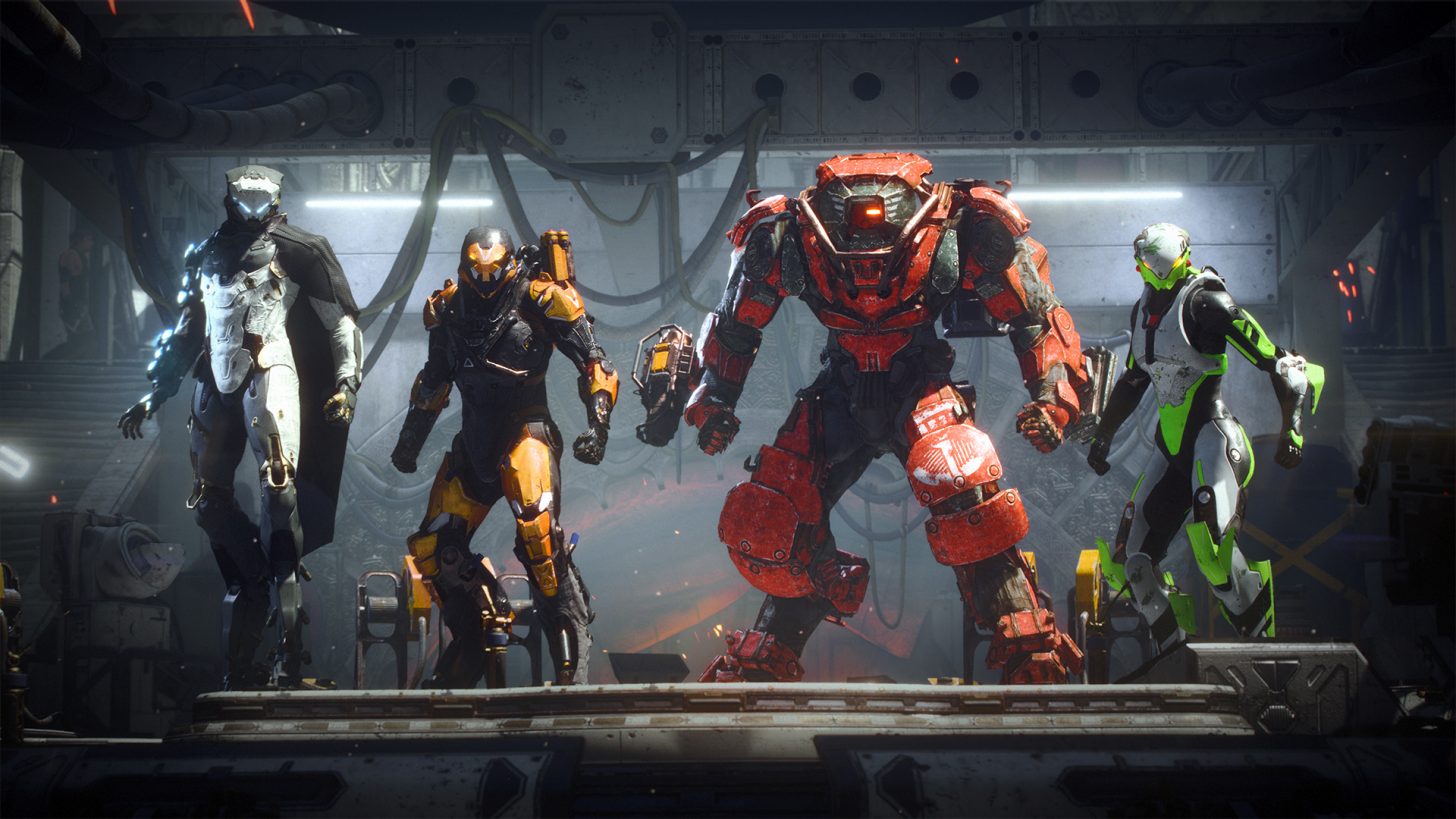Anthem isn’t getting shuttered for good until January 2026, but it’s already spent years as one of the industry’s preeminent tragedies. This week, former Anthem executive producer and BioWare veteran Mark Darrah published the first of a multi-video YouTube series about the game’s ill-fated production history, and how BioWare’s storytelling chops might have been too capable for its own good.
While Darrah didn’t take over as Anthem executive producer until late in its development, his first video charts his recollections about its production from its earliest conception in 2011, when he was working on other games at BioWare, to when he joined the project in 2017. To his credit, he says that even though he assumed leadership over Anthem just 16 months before launch, any blame for the state of its release falls on him.

“Some of this video, it’s probably going to look like I’m trying to shift blame around. Maybe I am,” Darrah says. “But ultimately, the responsibility for this game does mostly rest on me.”
The idea for Anthem started brewing sometime in “maybe late 2011, but certainly 2012,” a point in time when EA had what Darrah calls “an active disdain for singleplayer games,” as executives had seen the moneymaking potential of multiplayer-focused, microtransaction-laden models. Meanwhile, as the EA C-suite bragged about its refusal to greenlight singleplayer projects, an exhausted Mass Effect team under director Casey Hudson was looking for something new after closing out the trilogy with ME3.
It was then, Darrah says, that Hudson pitched a project that wouldn’t just be a new game, but a vision of an all-new BioWare: one blending the studio’s storytelling pedigree with a multiplayer-charged monetization tail.

“What Casey was essentially pitching was ‘What if Bioware game, but it could do FIFA numbers?’ What if you could tell a story with your friends? What if we had onboarding that allowed you to try the game but seamlessly move into paying for the game? Maybe not free-to-play, maybe free-to-play,” Darrah says. “Whatever you, an executive within EA are imagining, maybe this game can be that game.”
If you imagine yourself as an EA executive in 2012, that idea would probably sound pretty good—arguably too good for a studio that had, up until that point, been focused primarily on singleplayer storytelling. But, Darrah says, BioWare’s own ability to tell a good story helped Hudson sell the game we’d eventually know as Anthem to EA execs as a kind of nebulous ur-game that they could project all their wildest hopes onto, even if the pitch didn’t involve many specifics on how BioWare could actually deliver.
“Of course they wanted on board for this. And this is the power of a gifted story crafter. They can craft a story that threads the needle between giving just enough detail to seem real, but leaving out enough that the audience’s imagination can fill in everything else,” Darrah says. “They can build a story that can actually outlast them—can outlast the storyteller. A well-crafted story that hits an organization like EA in just the right way can give a project a momentum that can last for years and years beyond any rational decisionmaking process.”

EA greenlit the project, and prototyping moved forward under the codename “Dylan” in 2012. Two years later, Hudson left BioWare.
Darrah speculates that Hudson’s departure was influenced by the studio’s inability under EA ownership to hire for new projects. As Darrah tells it, the Mass Effect games had been able to justify additional staffing and resources thanks to prominent positions in the EA release calendar. Anthem, however, had to compete with the ongoing development of Dragon Age: Inquisition and Mass Effect: Andromeda spinning up at BioWare’s Montreal office—both of which were aiming for earlier releases.
“During 2012, 2013, and into 2014, what Casey would have been experiencing is something he wouldn’t have really experienced before, or at least not to this same degree, which would have been this starvation of people,” Darrah says.

Meanwhile, the mythmaking around Anthem had intensified to the point that its leadership was talking about it as a new form of videogame storytelling. Even after he took over as executive producer in 2017, however, Darrah says he never understood what that “promised change to storytelling” was intended to be.
“Maybe Casey did in 2014 and he took that secret with him,” Darrah says, “but certainly the team didn’t seem to know what the secret was.”
Darrah says Hudson had “a very strong, centralized leadership style.” and that after his departure, Anthem was left without direction. In the immediate aftermath, the project’s design stalled into circular iteration. Mechanics for mechsuit flight—the part of the game remembered most fondly by the Anthem players I know—were added. And then they were removed. And then added back in again.
While Darrah never squarely places blame on Hudson’s shoulders, there’s a clear implication in his earlier description of the original Anthem pitch that its development might never have become so purgatorial if Hudson had remained at BioWare to answer for it.
“If the original crafter was still around, they might be forced to pick their own story apart to dig in on specific areas, and maybe there’s no there there,” Darrah says. “Maybe there wasn’t anything behind the very evocative statement.”



